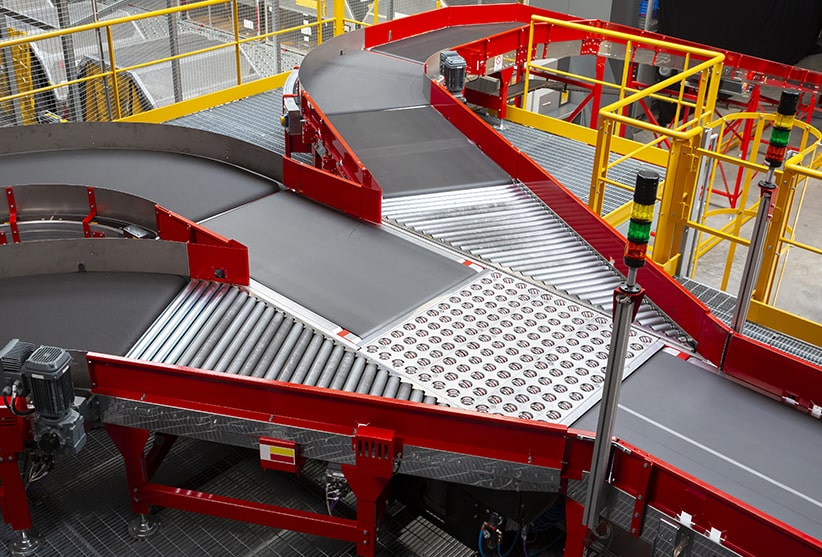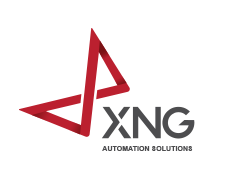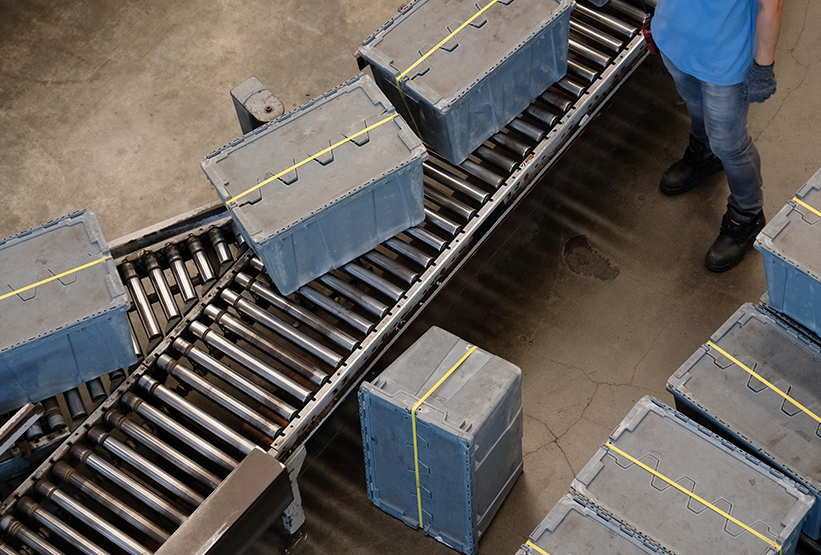Intralogistics Automation
Products and Solutions
CONVEYOR SYSTEM
Conveyors are the most vital component in automating intralogistics operations. Conveyor system helps you to optimise the process of moving, accumulation, and distribution of items, cartons, bins, bags or pallets. Each operation demands a specific function and hence a specific conveyor.
We, at XNG, build quality conveyor systems. Our team helps you to choose the most optimal solution for fulfilling your functional requirements and builds personalized solutions that best serve your individual purpose.
Belt Conveyor
Belt Conveyors are cost effective and are used to convey a wide range of materials of low to medium weight. Textured belt provides traction for products during incline or decline. Modular plastic belts allow the movements between links of the belt in a curved path.
- Speed: up to 60m/min
- Belt width: 100 – 1000 mm
- Belt types: PV, Rubber and Modular
- Capacity: 50kg/m (max. 100kg/m)
- Straight conveyor
- Incline or Decline Conveyor
- Curved Conveyor
Roller Conveyors
Roller conveyors are used for transporting material such as crates, boxes and pallets which have a rigid riding surface. The roller conveyor can be either powered or gravity type. The powered conveyor typically uses motorised drive rollers which in turn drives multiple idler rollers.
- Speed: upto 60m/min
- Conveyor width: 400 – 1000 mm
- Roller material: Steel, SS, PU coated
- Capacity: 50kg/m (max. 100kg/m)
- Straight roller conveyor
- Curved Conveyor
- Pallet conveyor

Distributors
The distributors or sorts are used to divert the products based on a criteria ranging from volumetric distribution to unique product ID. The mechanisms used to distribute products are selected based on the product time and the process. Some of the common mechanisms include
- Linear Arm
- Roller top
- Popup
- Pusher
- Turntables
Know more about these distribution mechanisms under our sortation solutions.
Mergers
Mergers consolidate the conveyor lines and take-away the items away in a single line of flow. The most common type of merger we work with are 90 degree mergers, saw tooth type merger and staging type merger. Controlled merging, which uses item presence sensors, ensures transfer of material to the main conveyor in a coordinated manner without causing a jam.
Singulation Conveyor
Singulation conveyor aligns items into a single file line with equal spaces between items. It permits products to be properly presented to downstream processes such as sorting, scanning, check weighing, labeling, metal detection or other processes.
Accumulation Conveyor
Zero pressure and low pressure accumulation conveyors are a family of roller and belt conveyors. They transfer and accumulate products to provide buffers and ensure steady supply of material to the downstream process such as sorting, packaging or other processes.
TALK TO OUR
EXPERTS
Connect with the team directly







